A family stands on the bridge over the railway tracks, looking out for trains. Parents Chris and Ellie and children Ivor and Oona. Ivor is eight. Oona is four. In her wheelchair, Oona is at the perfect height to see the tracks through the bridge’s plastic viewing panels.
Chris spots a train’s headlights in the darkness of Waverley Station. Slowly the train comes out of the tangle of tracks. Just before it passes under the bridge Chris, Ellie, Ivor and Oona raise their hands and wave vigorously with beaming faces. The driver waves back and the train passes beneath them. It’s a moment of joy. Hooray for train drivers who play along. Hooray for train drivers who make children happy. Ellie says she could spend an hour up there on the bridge with her children, turning Oona’s chair around to face incoming and outgoing trains over and over again. The drivers always wave. ‘I think they know that kids wait on the bridge and they look up and they’ll give the kids a wave as they drive past. The kids love that,’ Ellie says.
The family comes to the gardens mostly in the summer time. They come to wave at the trains, of course, and to look at the statues, particularly the dog statue and Wojtek the Bear. The children like to play in the small swing park at the west end of the gardens. Ivor loves the silver egg cup that he can lie in while his parents spin him around. Oona loves the egg cup too and sits in it with help. They both like the swimming hammock. Oona can manage, the animal chairs on springs but gets a little bored by them. The slides are no good for her, the swings are difficult and climbing and hanging are impossible without help. A sunken trampoline on to which she could wheel her chair would be good, Ellie says. And she’s seen a slide in Germany whose conveyor belt-like tubes sweep a child from one end to the other. One of those would be ideal.
The swing park is adequate but not perfect for the children’s needs. Thank goodness for the trains and thank goodness for the open space. Ellie loves the trees. For Chris, the gardens feel enclosed and safe, despite being so close to Princes Street and because of that he’s happy for Ivor to run around and play. ‘Even my daughter in a wheelchair, it’s quite good for her. There’s enough open space for her to enjoy that too,’ he says.
This stretch of green running through Edinburgh, the former Nor Loch, has fascinated Chris for thirty years. And he’s appreciated it for thirty years. From his student days when he took a bottle of Cava and some plastic cups to watch the festival fireworks, to recently when the family came to the Diwali festival and Oona saw fireworks for the first time. Meet-ups with friends, spontaneous visits after passing by and seeing something fun on in the Ross Theatre, the family loves the gardens and they’re often using them.
The gardens could be so much more, however. The paths in winter can be icy and a worry to negotiate. The steps down to the gardens, particularly from the floral clock end of the gardens, mean that Ellie or Chris have to lift Oona down in her chair otherwise they can’t get in or they face a long walk to the only accessible entrance on the other side of the gardens. And once they’re in, the Ross Theatre feels like an obstacle to get round – up those steep slopes again with Oona in her chair – just to go from one end of the gardens to the other.
‘It should be used more during the day,’ Chris says of the Ross Theatre.
‘I’d like to see lunchtime concerts on the stage,’ Ellie says.
‘Traditional music. Young bands.’
‘And it doesn’t have to be very loud. I think it’s a big enough space that you could do something on the stage and still have other people enjoying the peace of the park.’
The peace of the park. That’s the essence of the gardens. Keep that, Chris and Ellie say. Keep the trees, the statues, the fountains and the concerts. Keep the play park, but improve it, include more equipment that children with disabilities can use, and have more activities in the gardens for them both to enjoy. Ditch the steps and the steep slopes and the cobbles. Keep the enclosed feel to the gardens so that they stay separate to the bustling city but make better entrances so that people who want peace can easily walk in and find it.
Above all, keep the trains exactly as they are, let them roll in and out of Waverley with their golden headlights, under the bridge with the plastic panels, let the drivers continue to wave, and let the children continue to be enchanted in these city centre gardens.
Interview and transcript – Alison Irvine
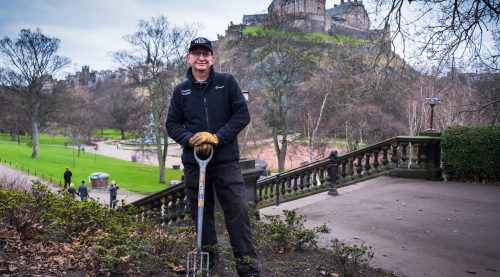
West Princes Street Gardens' Head Gardener, David, talks about his passion for gardening - including the floral clock of course - and reflecting on how West Princes Street Gardens have changed over the years.
Read David’s Story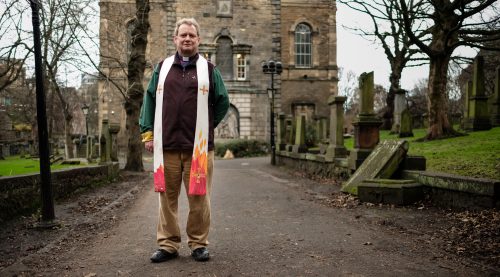
Reverend Peter Sutton describes St Cuthbert Parish Church's history and his own connection to West Princes Street Gardens
Read Reverend Sutton’s Story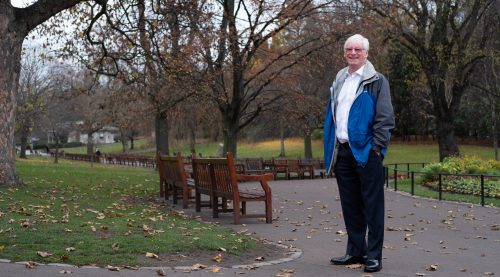
Our Chairman, Norman Springford, talks about his memories of visiting the gardens as a young boy and his pride in leading their reimagination.
Read Norman’s Story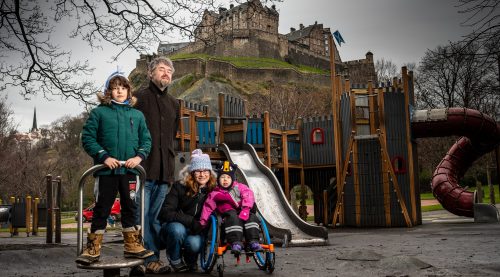
Join the Dooks Family on their visit to West Princes Street Gardens.
Read The Dooks’ Family Story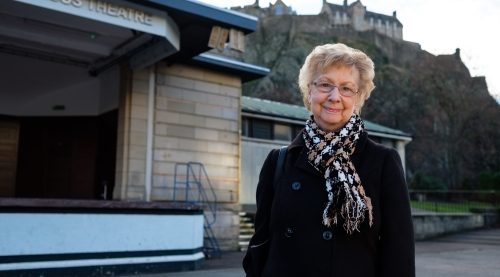
Moira Hepburn (or Auntie Moira) recalls fond summer days playing the piano at the Ross Theatre for Children's Hour.
Read Moira’s Story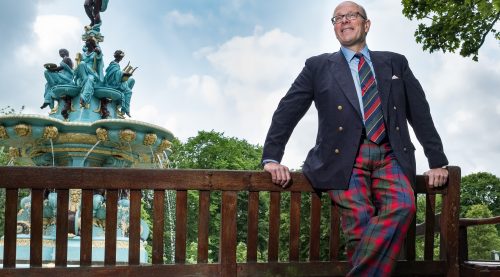
David Allfrey, Producer and Chief Executive of The Royal Edinburgh Military Tattoo talks about his enthusiasm for The Quaich Project and shares his favourite space within West Princes Street Gardens.
Read David Allfrey’s StorySign up to our newsletter and be kept up to date with the development progress of The Quaich Project.
If at any point you wish to be removed from our mailing list, simply click ‘Unsubscribe’ at the bottom of any of our e-newsletters or email [email protected].
You can read our privacy policy here